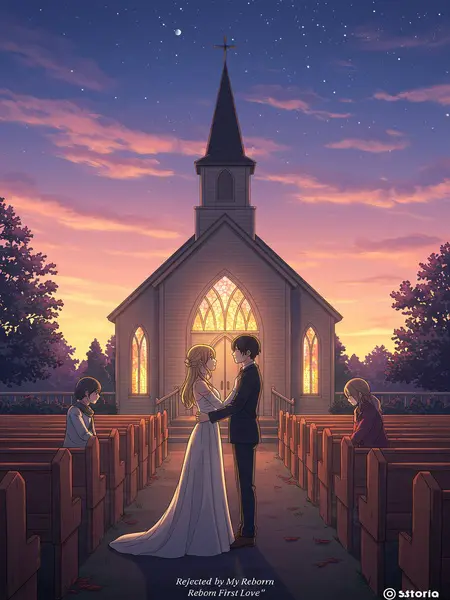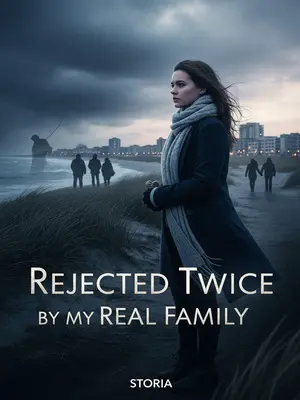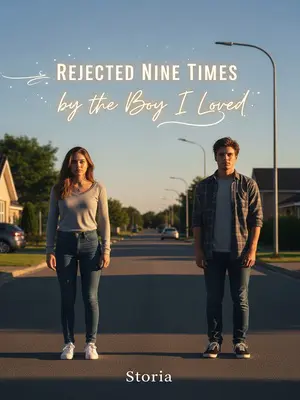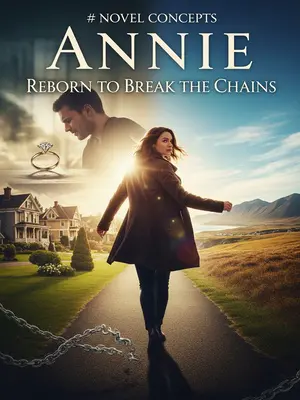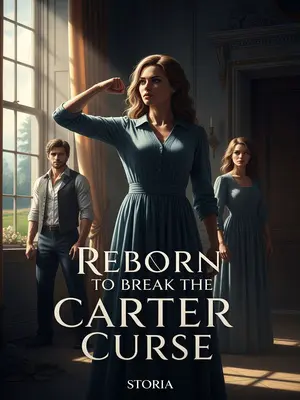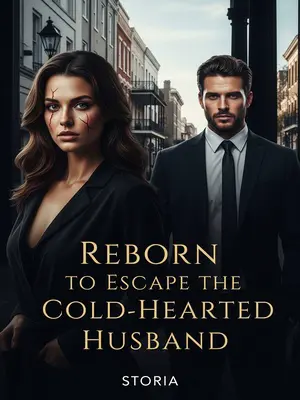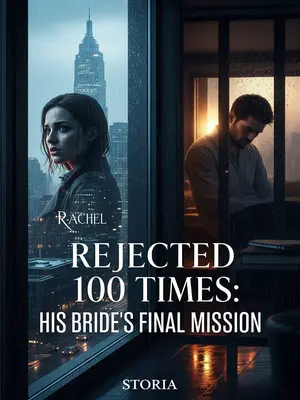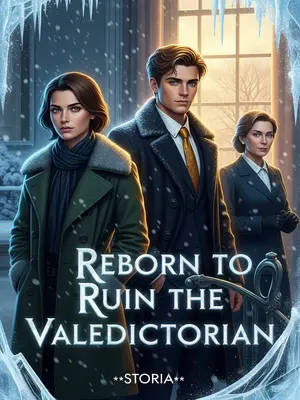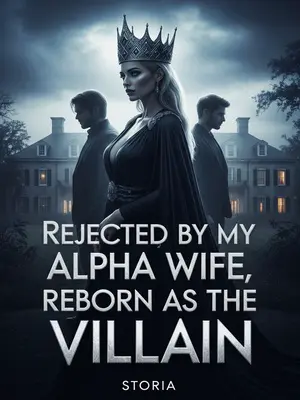Chapter 2: Broken Promises and Bold Defiance
The incident at the backyard party caused quite a stir.
By Monday, the story had traveled all over Maple Heights. At the grocery store, Mrs. Watson pretended not to stare, but everyone was talking—at the post office, the gas station, even at church on Sunday. I felt like a headline on the local news, except it was my life on display.
When I got home, Mom had already heard the news.
She was waiting for me in the kitchen, arms crossed, lips pressed together in that familiar way. Her voice was sharp as she rattled off the story, already piecing together what everyone else would say before I’d even walked in the door.
In my presence, she first scolded Caleb for being reckless and ungrateful, then lamented that he was still young and inevitably fickle. She ranted about him for the length of a commercial break before finally, hesitantly, asking me if I had truly made up my mind.
She’d always hated it when the commercials came on during her favorite shows, pacing the kitchen in irritation. Now, her words tumbled out in a rush, only pausing to check my expression. “Are you really done with Caleb, honey?” Her voice softened at the end, almost pleading.
I had already thought it through on the ride home.
I’d watched the trees blur past the car window, fingers tracing patterns in the condensation. My decision was made long before I stepped through the front door.
This wasn’t hard to resolve. Caleb was the one who’d messed up, and if we wanted to keep things quiet and avoid gossip, there were only two options.
Everything in our town worked by unspoken rules. It was all about appearances, keeping your head high and your business private. I knew what had to happen next, even before Mom asked.
First, the Taylor family elders could come in person to apologize and publicly declare that Caleb wanted to marry a Carter daughter. That would protect our family’s reputation.
A formal visit, maybe with a pie or a bottle of bourbon, and a public statement—something to put the rumors to rest. That would be the easiest way to keep my name clear.
Second, we could cut ties and stop all contact, avoiding any more suspicion.
It would be awkward, but clean. Better to end things than drag it out in front of the whole town.
Though the Taylors were at their peak, the Carters were also doing well—both families with proud military roots, equals in the community.
We were both respected. Dad’s stories from his time overseas were local legend, and the Taylors had their own share of war medals and newspaper clippings on the living room wall. It wasn’t like either of us needed to cling to the other’s reputation.
If it really came to breaking things off, it wouldn’t be impossible.
There’d be talk, sure. But Maple Heights had seen bigger scandals than this. We’d survive.
But in this world, women are always held to a harsher standard. Even without an official engagement, the fact that Caleb and I were childhood friends would make it much harder for me to find another good match.
Every aunt and grandmother in town would whisper about it at the farmers’ market, wondering why Natalie Carter couldn’t hold on to a good man. It didn’t matter if it wasn’t my fault—the story would always stick to me more than him.
There were plenty of eligible young people in Maple Heights, but most had already settled down by their late teens. Now, finding the right guy wouldn’t be easy.
By graduation, most folks paired off or moved on. The pickings were slim, and everyone knew it. My prospects weren’t exactly dazzling at this point.
So Mom still favored the first solution—it would be best for me, for the Carters, and even for the Taylors. A win-win for all.
She ran her hands over her pearls, calculating. She’d always been practical—thinking three steps ahead, weighing every outcome.
But since Caleb had refused to catch my bouquet that day, I naturally wasn’t going to force myself into a half-hearted arrangement.
I had too much pride for that. I wouldn’t beg for what was no longer mine.
Mom agreed, and we decided to wait three days. If no one from the Taylor family came to explain within that time, the Carters and Taylors would cut all ties for good.
Three days felt like a lifetime, but it was long enough for the rumor mill to churn and for everyone to make up their own minds.
The housekeeper quietly put away the engagement cards, and the matter was settled.
I heard her close the box gently, slipping it into the back of the linen closet. The silence was final, heavy with lost dreams.
Mom made all the necessary preparations, but to our surprise, after three days, it wasn’t the Taylor family elders who came to apologize. Instead, Caleb showed up at our door, carrying a wooden stick in the old-fashioned gesture of seeking forgiveness—a kind of “bearing the rod and begging forgiveness.”
No one in Maple Heights did things the old-fashioned way anymore, but there Caleb was—shoulders squared, holding a branch from the oak tree by the mailbox. He looked determined, and a little lost. I saw the neighbors’ curtains twitch as they peered out to see what was happening.
Under the warm March sun, he wore only a T-shirt and jeans and knelt, upright and motionless, at our front porch.
It was still chilly in the mornings, but the sun had a gentle warmth. Caleb knelt there, refusing to shiver, the branch in his lap like a prop in a school play. It would have been almost funny if it hadn’t been so serious.
No engagement gifts, no wedding contract, not even an apology—he just knelt there, as steady and unmoving as the old oak tree by our mailbox.
He stared straight ahead, jaw set. It was the kind of stubbornness that runs in small towns and old families, the refusal to be the first to break.
When the housekeeper reported this, Dad was furious.
I heard his voice from the den—loud, indignant, already half-rising from his chair. He’d always hated scenes, especially those involving his daughters.
Mom scolded him too, saying he didn’t know how to follow the rules.
She muttered about proper protocol and respect, pacing back and forth, her heels clicking on the tile. Even when she was angry, she was dignified.
Only I, amid Dad’s anger and Mom’s rebuke, had Caleb brought into the living room.
I sent the housekeeper to open the door. I wanted to see him, to get it over with. I stood by the bay window, watching the sun slant across the hardwood floor.
After three days apart, he looked even thinner.
His cheeks were hollow, his eyes tired. I wondered if he’d slept at all, or if he’d spent the nights replaying everything just like I had.
Beneath the thin cotton shirt, the lines of his body stood out like the veins of a tree.
He’d always been athletic, but now he looked almost fragile. The old scars on his arms were visible, reminders of all the scrapes and tumbles we’d survived together.
I still remembered the scar three inches below his left shoulder—a wound from a football game with Coach Miller’s son when he was ten. The prize that day was a silver fountain pen.
I could picture the moment as clear as day—the boys tumbling over the grass, the rush to the ER, the laughter afterward as he held that pen like it was a trophy. The memory felt both sharp and sweet.
Two inches below his right ribs was a knife scar, received at thirteen when I was kidnapped by a couple of drifters while traveling. Caleb had chased the car desperately, taking a blade to the chest to save me.
It had been the scariest night of my life. I’d screamed until my throat was raw, but Caleb had never hesitated. He’d always been brave, even when he was terrified.
I had been terrified, pressing a towel to his wound all the way home, barely saving his life.
The blood wouldn’t stop, and I sobbed the whole drive. Mom’s hands shook as she called 911. Caleb never cried, just told me stories to keep me calm.
When he recovered, he teased me, saying I’d cried more tears that day than he’d lost blood.
He’d always found a way to make me laugh, even when I was scared out of my mind.
That silver pen and the bloodstained towel are still tucked away in my dresser drawer.
I kept them wrapped in an old handkerchief, hidden beneath my favorite sweaters. They were my own secret reminder of what we’d shared.
But the bond between us was no longer what it once was.
Some lines, once crossed, can’t be uncrossed. We were standing on opposite banks, with a river of memories in between.
Something inside me felt as if it were tearing open. I called his name softly.
My voice trembled, barely above a whisper. It was the first time I’d allowed myself to hope he’d give me a real answer.
“Caleb.”
Only then did he look up, his eyes full of confusion.
He blinked, as if surprised to hear his own name. There was pain there, and something else—maybe fear.
“That day at the bouquet toss—you let it fall on purpose, didn’t you?”
I forced myself to look him in the eye, to demand the truth I’d been dreading.
“…Yeah.”
His voice was quiet, barely more than a breath. But there was no hesitation. I felt my heart drop, cold and certain.
“So you don’t want to marry me?”
It wasn’t the kind of question you were supposed to ask—especially not with Mom glaring daggers and the housekeeper hustling to close the doors. But I needed the truth.
Caleb hesitated, then answered.
He looked down, hands clenched in his lap. When he finally spoke, his voice was so low I almost missed it.
“…Yeah.”
That single word landed like a heavy bell, echoing in my mind again and again.
It was final, heavy as a church bell tolling at midnight. I pressed my palms to my knees, willing myself not to break down in front of him.
Each reverberation struck my heart like a hammer or an axe.
I had always thought our love could withstand anything. But there are some wounds even time can’t heal.
I thought of the green apples we picked at eight, the silver pen at twelve, even the champagne at our wedding. Each memory bore witness to our deep affection.
The images played in my mind like a movie on loop—us laughing, dreaming, planning a life together. They felt a world away now.
We had been a loving, harmonious couple.
Everyone said we were perfect. Maybe we were, once. But perfection can’t survive heartbreak.
But after living another life, he no longer wanted to marry me.
I realized with a painful clarity that second chances don’t always mean second endings.
I couldn’t understand why.
I wanted to demand an answer, to shake him until he explained. But he only sat there, silent, the distance between us growing by the second.
All my composure crumbled, and my voice trembled despite myself.
The tears threatened, but I swallowed them down. My pride warred with my grief, each word sticking in my throat.
“Why?”
Caleb didn’t answer.
He sat there for a moment, as if searching for words he didn’t have. Then, slowly, he stood up, shoulders hunched against an invisible weight.
He left only one sentence: “You deserve better, Natalie. This is on me—not you.”
He wouldn’t look at me as he spoke, his words raw and final. With that, he turned and left in haste, almost running out the door.
The screen door banged behind him, echoing through the empty hallway. I watched him go, my heart hammering, but I didn’t call him back.
The next day, the Taylor family sent a messenger with a contract and gifts.
It was all laid out on the dining room table—boxes tied with ribbon, legal forms stamped and signed. I recognized the Taylor family crest on the envelope, neat and cold.
But it wasn’t a marriage contract—it was a kinship pact. They wanted to call me family, but not as a daughter-in-law—as a sort of honorary sister. It felt like being handed a participation ribbon after losing the race.
Dad’s face turned red, and he slammed his fist on the table before grabbing his old hunting rifle.
He stormed out onto the porch, waving the contract in one hand, the rifle in the other. “You don’t insult a Carter under my roof!” he shouted, voice echoing down the block. I heard the Taylors’ car screech out of the driveway as the neighbors peeked through their blinds.
Before leaving, Caleb’s aunt squeezed my hand and wept.
Her hands were soft, her grip desperate. “You deserve better, Natalie,” she whispered, tears streaking her cheeks. I only nodded, not trusting myself to speak.
“Good girl, it’s Caleb who’s unworthy. Our family has failed you…”
She pressed a handkerchief into my palm, a gentle gesture in the chaos. It was the closest thing to comfort I’d get that day.
And so, after years of friendship, the Carter and Taylor families parted ways.
It was over—just like that. No more holiday dinners together, no more lake trips or shared birthdays. A line had been drawn, and neither family would cross it again.
But because the Taylors had come, at least there was an explanation for what had happened between Caleb and me.
People in town liked a good story, and now they had one—a neat ending, with nobody left to blame.
When neighbors asked, the Taylors only said that Caleb and I had always been like siblings, never once slandering my name.
It was a small mercy. No ugly rumors, no finger-pointing. Just the quiet understanding that sometimes things don’t work out, no matter how much you want them to.
Thus, the matter was settled.
The phone stopped ringing, the whispers faded. Life in Maple Heights went back to its usual rhythm—church on Sundays, football on Fridays, and gossip saved for the grocery store line.
Three days later, news arrived from Chicago: Caleb was being sent to the army base out west.
The letter was short and official. “Private First Class Taylor is ordered to report to Fort Carson, Colorado.” Mom read it out loud, her voice tight. Dad just grunted, eyes distant.
Caleb and I were both from military families, but because the Taylors had lost so many to the service and he was their only grandson, he hadn’t enlisted at seventeen in my previous life.
His family kept him close, protected. I remembered the quiet arguments at Christmas, his mother’s tears as she clung to him, refusing to let him go.
It was only after we married and had our first son that he went overseas. I watched over our child, worrying day and night for his safety.
Every letter from him was folded and refolded, tucked in the pocket of my robe. I memorized every word, every promise to come home safe.
But now…
Now we weren’t married, had no children, and there was no cause for such worry—yet he still chose to enlist.
It was his way of starting over, I guessed. Of running from everything we’d lost. It hurt, but I understood. We all needed somewhere new to belong.
A sharp pain shot through my palm. Looking down, I realized Mom was pinching me.
Her fingers dug in, snapping me out of my daze. I blinked, trying to refocus, to let go of the past and return to the moment.
She frowned and whispered, “The young man from the Owens family is here. Why are you still daydreaming?”
I straightened, smoothed my skirt, and looked up. My heart wasn’t in it, but I’d been raised to be polite, even when it hurt.
I snapped back to myself and glanced at the figure behind the glass doors.
He waited just outside, shifting his weight from foot to foot. The afternoon sun haloed his blond hair, casting his face in gentle light. I forced myself to smile.
He wore a blue button-down, tall and upright as a birch tree. He lacked Caleb’s boldness, but exuded a gentle, scholarly air.
He looked the part of the perfect son-in-law—clean-shaven, tie perfectly knotted, hands folded politely. There was a quiet confidence in the way he carried himself.
This was none other than Ethan Owens, the second son of the Owens family.
Everyone in town knew the Owens boys—always volunteering at the library, polite at every town event. Ethan had a reputation for being kind, thoughtful, and just a little shy.
The Owens clan wasn’t prominent, and no one among them held office in the county. Their only distinction was that an ancestor had once been a state senator, giving them a lingering reputation in Maple Heights.
The family’s history was more a story than a claim to power now. Their old house sat at the end of Main Street, its porch sagging but the roses always in bloom.
By Ethan’s generation, all that remained was a good name and an old family home.
It was enough, in a town like ours, to keep them in the circle of respectable families. But the days of grand influence were long gone.
“This second son of the Owens family aced the SATs this spring. He’s in the prime of his youth and writes beautiful essays. How is he any less than Caleb?” Mom whispered, eager for me to accept the match.
She leaned in, her voice low. “He’s a good boy, Natalie. Smart, respectful. He could take care of you.” I knew she meant well, but it stung just the same.
Dad, a blunt man with a military background, had always respected the Owens family. If not for Caleb, he would have arranged a marriage with the Owens long ago.
He’d joked about it at Thanksgiving, elbowing Ethan’s father and hinting at how good our families would look together. It was always in good fun, but now the undertone was serious.
So now, with Caleb gone, Ethan was the first suitor to come to mind.
I felt the weight of expectation settle on my shoulders again. The town might forgive one broken match, but two would be a scandal.
But as I looked at the man before me, I only felt a wave of frustration.
Not at Ethan, but at the whole situation. I was tired—tired of being passed from one plan to the next, my feelings set aside in favor of what was ‘best’ for everyone else.
Not because of who he was, but because of everything that had happened and all the words I had heard.
I wanted to scream, to shake off the burden of other people’s hopes and dreams. It wasn’t fair, and for the first time, I didn’t care who heard me say it.
“Why does a woman have to get married? Why is it shameful if she doesn’t? Why should all my skills—rifle, bow, piano—mean less than a ring?”
If there were true affection, I would accept it. But clearly, there was neither love nor loyalty.
I looked at Ethan, searching for any sign that he might understand. His eyes were gentle, but there was no fire there. No spark.
These thoughts galloped through my mind like wild horses.
I felt them pounding inside me, demanding to be spoken, even if nobody else wanted to hear.
I knew such words were rebellious and shouldn’t be spoken, but before I realized it, I had already voiced them all.
The silence that followed was thick as honey. Mom’s hand froze in the air, halfway to covering my mouth.
Mom’s hand, halfway to covering my mouth, froze in midair. She scolded me softly, exasperated: “You don’t know how to act.”
Her words were sharp, but her eyes were scared. I’d never challenged her like this before, and she didn’t know what to do with my rebellion.
Behind the glass, Ethan’s shoulders trembled slightly. For a long while, he said nothing.
He stared down at his hands, thinking. The clock ticked in the hallway. I braced myself for him to stand up and leave, for everything to fall apart again.
Mom sighed. “Ethan, please don’t mind her. My daughter’s been spoiled and speaks without thinking. Please don’t take offense.”
She tried to smooth things over, her tone apologetic, as if trying to erase my words from the air.
Ethan sat upright, holding his coffee mug, silent.
He didn’t move, just stared into his cup. I watched the steam curl upward, willing myself not to cry.
I almost thought the proposal was over, when at last he spoke:
“Natalie’s not being rash. She’s just saying what most people are too scared to admit.”
His voice was quiet but steady. I glanced up, surprised by the conviction there.
“This world has always treated women more harshly than men. Natalie’s insight and awareness are rare and precious.”
He looked me in the eye, offering a small, understanding smile. I felt a flicker of hope, faint but real.
“But as for whether there’s a broad road in this world for women to walk, that depends on…”
His words trailed off, but for the first time in weeks, I felt something stir in my chest—a stubborn, reckless hope.
